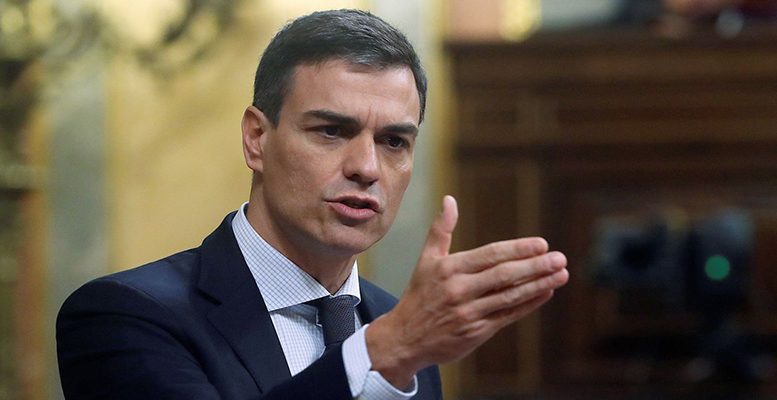Fernando González Urbaneja | Sánchez’s speech in Parliament on Wednesday could go down as one of the most consistent and substantive speeches of his term in office. Then he remained in the debate on the arms shipment to Ukraine, which was an important aspect, but not the most important or the only one. The arms shipment was a rectification, not unusual for Sánchez, of the position he had maintained 48 hours earlier, which marked a more proactive approach to the invasion and war in Ukraine. So much so that it has led to tensions in the coalition, accredited through unequivocal statements by the two leading Podemos ministers, who do not propose breaking the coalition, amongst other reasons because it would also mean breaking their own internal coalition in the Unidos-Podemos set-up and some others. Neither Yolanda Díaz, the foreseeable head of the purple coalition’s ticket, nor its Catalan partners, support the Podemos leaders’ position to sustain the government agreement.
But Sánchez’s speech had more content; he tried to go further. After analysing the crisis caused by the illegal and immoral invasion of Ukraine, the Spanish head of government warned citizens of the economic consequences of the crisis. It is jeopardising the economic recovery and threatening problems, with high inflation, energy shortages and lower growth. As a third part, Pedro Sánchez set out the outlook for an economic policy strategy that includes an “income pact” along the lines of that set out in the Pactos de la Moncloa in 1977.
From Wednesday’s words to today there has only been the meeting at the Moncloa, with trade unions and employers’ organisations to start talking about a possible fifth agreement to indicate collective bargaining. A type of agreement that has proven effective over the last two decades but which is a far cry from the Moncloa Pacts, which proposed a broad deployment of reformist economic policies beyond the incomes pact.
The success of the Moncloa Pacts rested on two pillars: first, necessity and second, a well-thought-out methodology. At present, the need is similar to that of half a century ago, but the methodology is conspicuous by its absence. At that time, President Suárez approached all the parties (and later the emerging social forces) to summon them to the Moncloa with a clear agenda to discuss a far-reaching political agreement.
More than a few, even within the Suárez government, argued that the opposition would not attend the meeting. It came, albeit dragging its feet; the PSOE were the last to enter. Moreover, Suárez handed the meeting a solid document, prepared and defended by Vice-President Fuentes Quintana, which achieved consensus with slight additions from the attendees. Finally, the Pact signed in Moncloa was submitted for debate and approval by Congress.
The methodology worked and the results were effective. So much so that it served as a reference for the Constitutional Pact of a year later. Now no one has presented a methodology and a base document for debate. Sánchez outlined it in his speech to Parliament, but without materialising it, without going into detail or committing himself. Suarez’s position in 1977 was not solid, his government was in a minority and suffered internal fissures, but the Prime Minister was bold and dragged the other parties into the consensus that made the transition and democracy possible.





